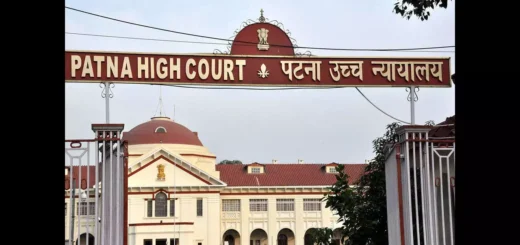The Supreme Court has stated that an application for an extension of time under Section 29A of the Arbitration and Conciliation Act can be submitted either before or after the termination of the arbitral tribunal’s mandate.

The Supreme Court explained that a request for an extension can be made either before or after the Arbitral Tribunal’s mandate ends when the statutory period expires. The term ‘sufficient cause’ should be understood in a way that supports effective dispute resolution. The Court needed to decide if the High Court should have approved the appellant’s request for an extension under Section 29A(4) of the Arbitration and Conciliation Act, 1996. The Division Bench, which included Justice Pamidighantam Sri Narasimha and Justice Sandeep Mehta, stated that while the law allows parties to control the arbitration process, it also gives the Court the authority to intervene when necessary to ensure that disputes are resolved properly.
Senior Advocate Gaurav Agrawal represented the Appellant, while AOR Amrish Kumar represented the Respondents. In this case, the appellant had a works contract with respondent no. 1. When disputes arose, the appellant sought arbitration by sending a notice. The High Court approved the appellant’s request under Section 11 of the Act to appoint a sole arbitrator. After the first meeting of the Arbitral Tribunal, both parties were given time to finalize their pleadings. The 12-month period set by Section 29A(1) for issuing the award was due to end on October 8, 2020. However, because of COVID, an additional 2 years was added to this timeline.
The hearing ended on May 5, 2023. The appellant submitted a request under Section 29A(4) to the Gujarat High Court for more time to issue the award, but it was denied. Upset by this, the appellants went to the Supreme Court. The Bench noted that Section 29A and the ruling in Rohan Builders (India) Pvt. Ltd. v. Berger Paints India Ltd 2024 SCC OnLine SC 2494 indicate that subsection (4) allows a court to extend the Tribunal’s mandate even after the 18-month period has passed. An application for an extension can be made after this period as well. Although subsection (4) mentions that the Tribunal’s mandate ends when the time expires, it still allows parties to request an extension from the Court. The ruling in Rohan Builders (supra) clarified that the mandate only ends if no extension request is filed, meaning it can still be extended after expiration.
The Bench stated, “The language of Section 29A(4) and the ruling in Rohan Builders (supra) clearly support the appellant’s position that an extension request can be made before or after the Tribunal’s mandate ends.” The Bench also considered whether to grant an extension in this case. They referred to Section 29A(5), which says that extending the time is at the court’s discretion and should be based on sufficient reasons and conditions the court finds appropriate.
The Court explained that it would consider the time frame from March 31, 2023, to August 1, 2023, when deciding if there was enough reason to use the power under Section 29A(5) to extend the deadline. The Bench found the High Court’s conclusion of a 2-year and 4-month delay in filing the application to be incorrect.
The Court emphasized that it can extend the time if there is sufficient cause. The Bench stated, “The term ‘sufficient cause’ for extending the time to issue an award should reflect the main goal of the arbitration process. The key aim of an arbitral award is to settle disputes through the agreed-upon resolution method chosen by the parties. Thus, ‘sufficient cause’ should be understood in a way that supports effective dispute resolution.” The Bench also noted, “Considering that the pandemic began before the 12-month period after the pleadings were completed, and excluding the time from March 15, 2020, to February 28, 2023, as per the Re: Cognizance for Extension of Limitation case, along with the agreement between the parties on May 5, 2023, to request an extension by filing an application, we believe there is sufficient cause for extending the time.” The appeal was allowed, the High Court’s judgment was overturned, and the period for the Arbitral Tribunal to make the award was extended to December 31, 2024.
Cause Title: M/S Ajay Protech Pvt. Ltd. v. General Manager & Anr [Neutral Citation: 2024 INSC 889]
Appearance:
Petitioner: Senior Advocate Gaurav Agrawal, AOR C. George Thomas, Advocates Manan Daga, Kaarunya Lakshmi
Respondents: AOR Amrish Kumar









